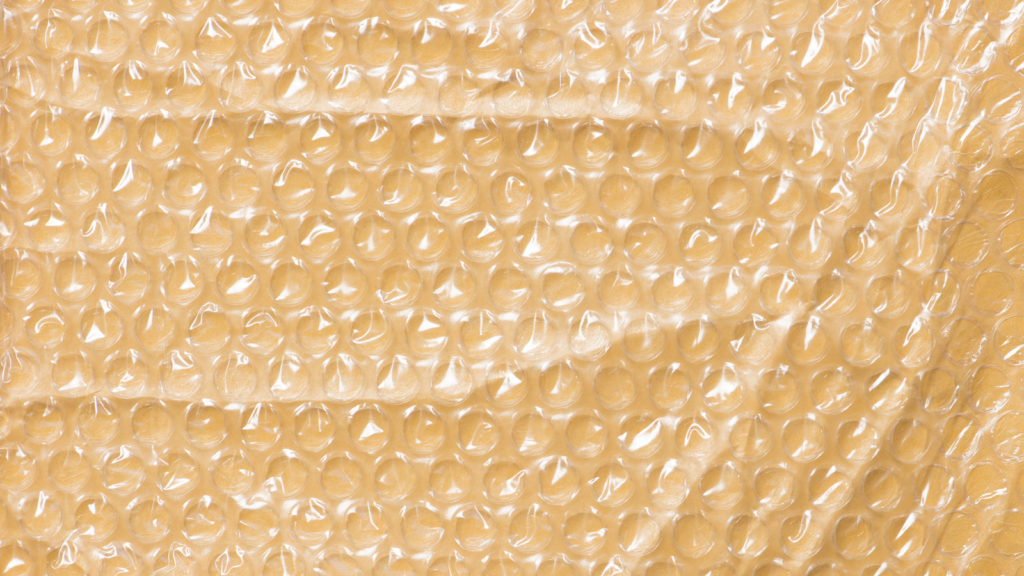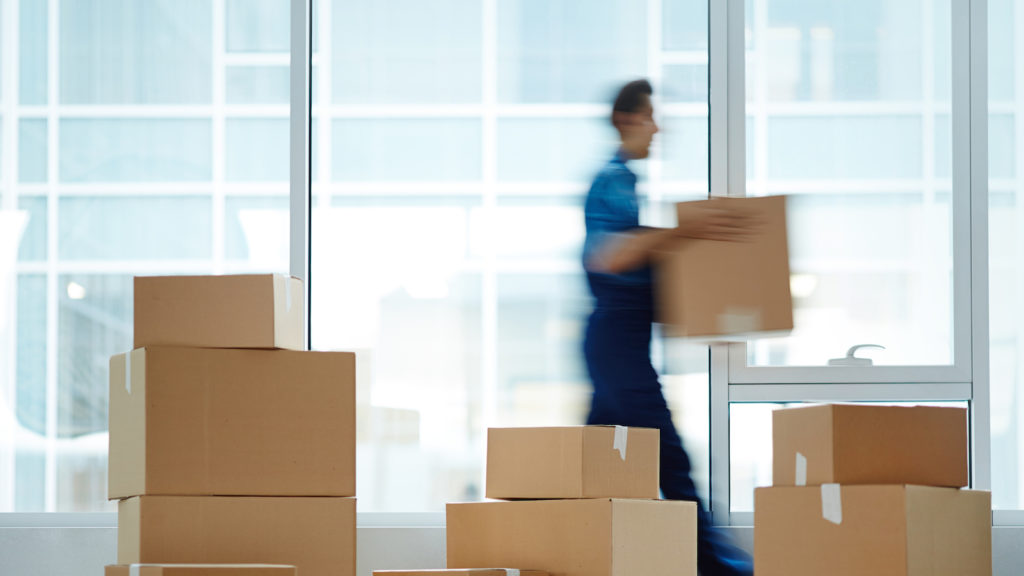Table of Contents
** Minutes
While dunnage isn’t a typical vocabulary word of the average consumer, it’s a commonplace term for shippers. Used to describe packaging components like bubble wrap, kraft paper, crinkle paper, plastic bracing, fillers, planks, blocks, and boards, dunnage helps secure and support packages throughout the shipping and handling process.
If you’ve ever picked and packed an order, you probably used dunnage to help protect the products in some way. The more fragile an item, the more dunnage it needs. For example, if you shipped a glass vase, you probably used bubble wrap to fill in the gaps in the box so the case wouldn’t shift around. Alternatively, if you shipped a pillow, you don’t need any dunnage given the low risk of damage while in transit.
What is dunnage?
Dunnage is the durable padding material used to protect goods during shipping. Dunnage can be anything from bubble wrap and packing peanuts, to industrial solid plastics that provide cushioning so items stay put.
Of course, dunnage will do its job best when accompanied by the appropriate box or poly bag. Shippers shouldn’t place a small item in a large box and fill it with dunnage, nor should they put a fragile item in a bubble mailer and call it a day.
Why shippers use dunnage
During transit, your packages may go through tough environmental conditions while in sorting facilities, trucks, ships and other vehicles. Dunnage is useful because it prevents items from moving and helps to absorb shock. Here are the three main benefits of using dunnage:
1. Damage protection
Dunnage protects packages when they are sliding across a truck, ship, or train. Proper dunnage can be incredibly cheap, but it protects valuable, fragile, and loose items.
2. Moisture protection
Depending on where products are being shipped, moisture can harm the products. With the right dunnage, you can protect valuable equipment like electronics from moisture when shipping.
3. Shock absorption
Products being shipped can slide around, drop, get squished, or be subject to collision, which can lead to shock and vibration. Dunnage is always put in place to act as a shock absorber to prevent damage.
The 9 types of dunnage
There are many types of dunnage materials available. Depending on the type of products you sell, you can use a lightweight material like bubble wrap to protect smaller items, while using steel to protect expensive and heavy items. Here are common dunnage materials used for shipping packages:
1. Solid plastics
This kind of dunnage is used mostly in industrial, high-value shipping. Solid plastics are more expensive than other dunnage types but are worth the cost for high-value products that need protection.
2. Bubble wrap
Bubble wrap is one of the most common ways of shipping glass and other fragile products. It can be reused again and again as long as the bubbles don’t pop.
3. Wood
Wood can be used to create barriers between items, usually used for strong and heavy goods.
4. Air pillows
Air pillows can be deployed inside packages in order to keep items from sliding. These are often used as a gap filler to fill in missing space.
5. Kraft paper
Kraft paper is recycled paper usually crinkled and stuffed in a package. It’s one of the most common dunnage types because it’s:
- Cheap
- Eco-friendly
- Reusable
- Highly effective
6. Foam
Foam is often used to pad electronics, medical equipment, sensitive items, and fragile or sharp pieces. If you’ve purchased a TV before, you’ve probably taken it out of the box with foam dunnage on the side.
7. Steel
Steel is one of the most expensive dunnage options which is typically used for high-value shipping. If your products are heavy, steel is a good dunnage option because it can prevent heavier products from damaging lighter products.
8. Corrugated paper
Corrugated paper is another popular dunnage choice. Its high-tech construction ensures the material can carry a wide range of weights, protects against moisture, and provides sustainable packaging options.
9. Custom dunnage solutions
Custom dunnage is needed sometimes when you have fragile materials that have very specific dimensions. You can work with dunnage providers to help you design the dunnage needed to protect your products.
Conclusion
Dunnage is important not only for big freight shippers, but also for ecommerce shops wrapping their packaging in dunnage such as bubble wrap, crinkle paper, air pillows, recycled paper (aka kraft paper).
Depending on the types of products you’re shipping, the varied array of dunnage options can help you ship products so they reach customers without getting damaged. With the right dunnage, you can also prevent customers returns because no one wants a damaged product.
When looking into dunnage options, take into consideration the types of products you have, how they’re shipped, weights and packing options to find the right dunnage for you. If you’re outsourcing logistics to a 3PL, make sure to ask about their dunnage options and how they keep your products safe while in transit.
Let ShipBob pack and ship for you!
At ShipBob, we pride ourselves on being the best fulfillment company for ecommerce merchants. With our best-in-class technology, integrations with ecommerce platforms, fulfillment services, and fulfillment centers across the country, your inventory and orders are in good hands.
In ShipBob’s fulfillment centers, we use recycled crinkle paper to fill packages that need extra padding. If an item is fragile, we work with the merchant to use stronger, more supportive options.
ShipBob gives you the tools you need for inventory control, order management, and 2-day shipping. To save on overall shipping and logistics costs, partner with the ShipBob team. Request a quote by clicking the button below.



